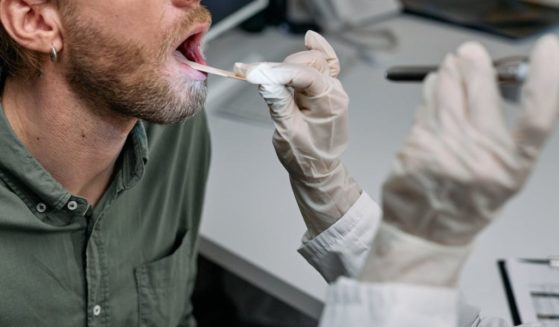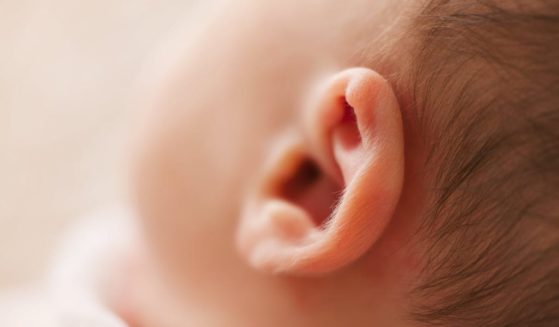WaPo Attacks Trump for Not Knowing About Granddad's Death - But Turns Out He Died 28 Years Before Trump Was Born
It’s one of those headlines that’s an editor’s dream: “Trump ‘didn’t know people died from the flu.’ It killed his grandfather.”
No doubt there were plenty of smiles around The Washington Post’s newsroom when they came up with that one on March 7.
The occasion was President Donald Trump speaking at the Centers for Disease Control and Prevention in Atlanta. There, he brought up the death count from influenza.
“Over the last long period of time, you have an average of 36,000 people dying [yearly],” Trump said.
“I never heard those numbers. I would’ve been shocked. I would’ve said, ‘Does anybody die from the flu? I didn’t know people died from the flu.’ … And again, you had a couple of years where it was over a 100,000 people died from the flu.”
Yes, The Post gave him, he was correct. There were seasons where over 100,000 people died of the flu. That led to this quartet of paragraphs:
“One of those episodes was the 1958 pandemic, which killed 116,000 in the United States,” Gillian Brockell wrote.
“Another was 1918.
“That is the year Trump’s paternal grandfather died.
“He died of the flu.”
It’s difficult to take the line breaks for effect there seriously when they make it sound like it’s a snippet from the world’s worst children’s book, “Influenza ‘N’ You: Not Pals.”
But anyway, yes, Friedrich Trump was a successful businessman who died at the age of 49 during the flu pandemic of 1918. He’d come from Germany in 1885 and would be, as The Post previously noted to great effect, an “unaccompanied alien child” under today’s laws.
Most unaccompanied alien children don’t run away from home at 16 and travel 350 miles to the nearest port city to buy a ticket in steerage class and sail to New York, however, which is probably why we had more open immigration laws for most of the 1800s.
The Post also pointed out that he made his relatively small fortune opening businesses in the red-light districts of cities and was deported from Germany when he attempted to return because he’d skipped out on military service as a teenager. Speaking ill of the dead is apparently all right when the dead is of Trumpian stock, I guess.
Trump, The Post reported, has mentioned his grandfather before.
“My grandfather was up in Alaska for a long time. He was looking for gold. He was searching for gold. He didn’t find it, but he started opening up little hotels for those looking for gold. And it worked out,” Trump said back in a February 2019 speech.
However, you may notice something about the date of the pandemic: 1918.
A few paragraphs below that quartet of children’s-book lines was this bit of information that might be slightly important to understanding the story: “Friedrich’s eldest son, Frederick, was only 12 when his father died, but he and his mother would pick up the family business. It would be another 28 years before Fred and his wife would have their fourth child, a boy they named Donald.”
That’s right, Trump’s grandfather died the better part of three decades before he was born.
I was born 10 years after one of my grandfathers died and I don’t know how long after my other one did. The only reason I know what they died of is that they both died of the same thing — colon cancer, meaning there’s a strong chance it runs in my family. You generally don’t tell your child, “Hey, you know what you should watch out for because it runs in the family? Spanish flu.” That’s not a conversation parents typically have with their offspring.
At least my grandfathers died in the area of about 40-odd years ago. This was 102 years ago. Trump is supposed to bring this factoid from his family’s past out in conversation like it happened yesterday? Is he supposed to rattle off statistics about the Spanish flu? Is that what we want at this point?
You may have missed this one when it originally came out. We certainly did, and it’s probably because most media outlets knew better than to run with the “Trump doesn’t even know his grandfather died in the 1918 flu epidemic a whole 28 years before he was born” narrative.
However, this was the kind of thing that the media has been willing to run with before.
The rest of the piece dealt with the fact that Trump sometimes got details about his family’s past wrong — which would, in other words, back up the fact that he simply doesn’t remember this kind of thing.
This seems more exculpatory than not, but OK.
The Post’s piece closed with another part about how he got his genes to understand data about the coronavirus from a “super-genius uncle.”
“People are really surprised I understand this stuff,” Trump said. “Every one of these doctors said, ‘How do you know so much about this?’ Maybe I have a natural ability.”
That doesn’t have anything to do with the rest of the piece — but at that point, it hardly seems like it would have mattered.
Is this really the best that they’ve got?
Truth and Accuracy
We are committed to truth and accuracy in all of our journalism. Read our editorial standards.












